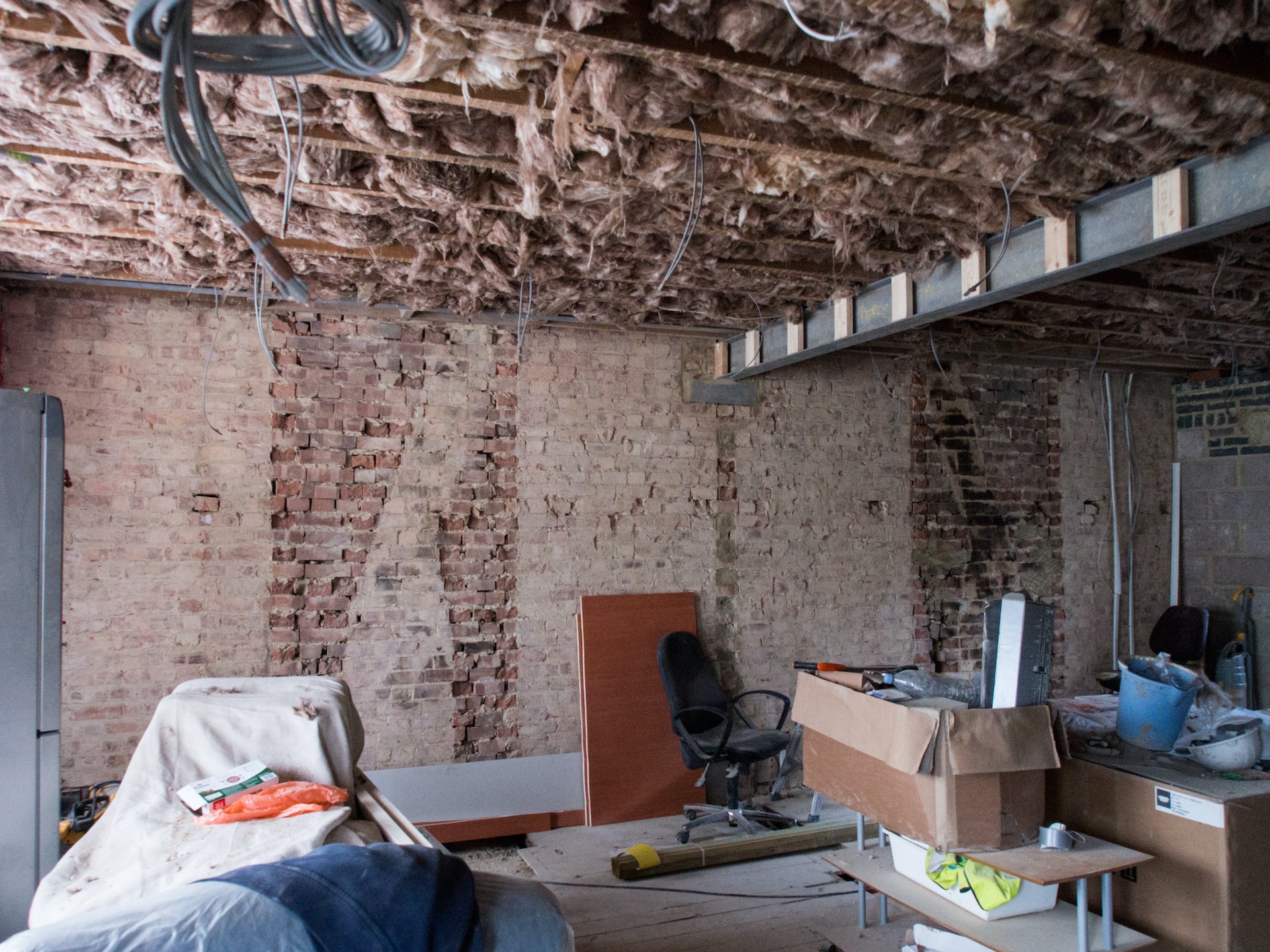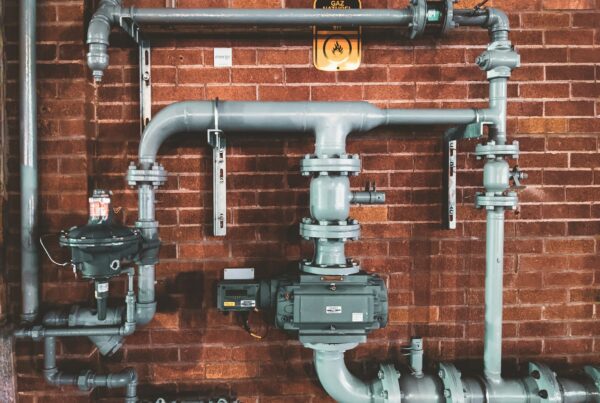Last Updated on November 22, 2023
Renovating a home can be a thrilling project because it gives our living areas a fresh look. It may, however, easily become an overwhelming and expensive undertaking in the absence of adequate preparation and funding. In this post, we’ll look at some typical mistakes individuals make when it comes to financing home renovations and offer advice on how to prevent them.
Lack of Proper Budgeting
Establishing a budget is one of the first and most important phases of any home renovation project. It is easy to overspend or run out of money in the middle when you don’t know how much you can afford. Consider carefully how much you can afford to put toward your makeover and how much you can really afford. Take into account the price of supplies, labor, licenses, and unanticipated costs.
Don’t forget to budget for a contingency reserve to cover unforeseen expenses that might occur during the project. A more seamless restoration procedure and the avoidance of financial stress are both possible with a realistic budget that you determine and adhere to.
For any home improvement project to be successful, proper budgeting is necessary.
It not only enables you to successfully prioritize your costs but also helps you stay within your financial means. It’s crucial to take into account every aspect that could affect the cost of your renovations when creating a budget.
Start by researching the current market prices for materials and labor. This will help you determine a reasonable amount to set aside for these costs. Don’t forget to factor in the price of licenses and other expert services you may require, such as interior designers or architects.
But there are other costs to take into account besides the apparent ones. Unexpected expenses are common in renovation projects and can mount up rapidly. For instance, you can find unresolved structural problems that need to be fixed or have delays that call for more labor expenses. It is advisable to set aside a contingency reserve equal to at least 10% of your overall budget in order to cover these unforeseen costs.
The effect of your renovation on your day-to-day activities is another often-ignored component of budgeting. You may need to find alternate housing throughout the construction phase, depending on the size of the project. Your budget may incur considerable additional expenses as a result, such as moving expenses or storage charges for your possessions.
It’s also crucial to think about how your renovation may affect your finances down the road. Will the upgrades raise your house’s value? If so, how much? You may allocate your budget more wisely if you are aware of the possible return on investment.
You may create a realistic budget that fits your goals and available funds by taking the time to carefully assess your financial status and take into account all potential costs. Keep in mind that creating a healthy budget involves more than just limiting your spending; it also entails making wise financial decisions that will result in a stress-free and successful home renovation.
Neglecting a Thorough Project Assessment
It’s crucial to perform a comprehensive space assessment before starting any home improvement project. Determine the precise places that need to be renovated and the amount of work that will be required. This evaluation will assist you in determining the project’s scope and associated costs.
If you skip this step, you can underestimate the amount of time and money needed, which could cause delays and budget overruns. Take a close look at your house’s condition, get professional advice if necessary, and create a detailed plan outlining the necessary modifications.
Renovation Needs And Goals
It is essential to precisely outline your demands and goals while organizing a home renovation. Establish your goals and the reason behind the makeover. Are you trying to raise the value of your house, update its aesthetic appeal, or make it more functional?
Having a distinct vision can help you prioritize improvements and direct your decision-making process. Additionally, it will stop pointless additions or modifications that can result in wasteful spending.
Choosing the Wrong Financing Option
A crucial component of home remodeling is financing, and making the incorrect decision now could have long-term financial repercussions. Thoroughly evaluate the terms and conditions, interest rates, payback terms, and associated costs of each financing option before committing to any deal.
You ought to look into a range of funding choices, including government initiatives, home equity lines of credit, and personal loans. Consider your options carefully, and choose the one that best suits your financial circumstances. Each choice has advantages and disadvantages of its own.
Ignoring Credit Considerations
Furthermore, some contractors apply for home improvement financing to simplify the purchasing process for their customers. When exploring your financing options, your credit history plays a pivotal role in determining the financing alternatives and interest rates available to you. Overlooking your credit history and score may lead to less favorable terms or limit your financing options.
It is advisable to obtain a copy of your credit report and thoroughly review it for any inconsistencies or mistakes. If necessary, take proactive steps to improve your credit score before submitting a financing application. By addressing any credit difficulties in advance, you not only increase your chances of securing better financing alternatives but also position yourself to potentially save money over the course of your home renovation project.
Failing to Plan for Contingencies
Despite your best efforts to plan, unforeseen problems might still occur during a renovation project. You may incur more expenses, delays, and irritation if your budget and schedule do not take these variables into consideration.
Create a contingency reserve to lessen the effects of unanticipated events, including structural repairs or adjustments to material prices. Having this buffer will ease your mind and support you through any obstacles that may arise when renovating.
Not Seeking Professional Advice
Although doing things yourself can be rewarding, it’s important to understand your limitations. Seeking advice and ideas from experts on the subject can be quite beneficial.
An interior designer, contractor, or architect can assist you in organizing and carrying out your remodeling job more successfully. Their knowledge can guarantee that your idea becomes a reality and assist you in avoiding expensive blunders.
Overlooking Government Programs and Incentives
Numerous governments provide a range of initiatives and financial rewards to encourage sustainable and energy-efficient remodeling. These programs can offer financial support and serve as cost offsets.
Look into the grants, tax credits, and programs that are offered in your area. These incentives help you make environmentally sound decisions that will benefit your budget and the environment in the long run, in addition to helping you finance your makeover.
Ignoring Energy-Efficiency Considerations
Energy-efficient components help you save money on power costs and lessen your environmental impact as you renovate your home. Ignoring energy-efficiency issues can result in missed chances to save money over the long run.
Upgrade to energy-efficient windows, appliances, lights, and insulation. These upgrades may lead to reduced energy costs, more comfortable living spaces, and a higher market value.
Long-term Savings from Energy-efficient HVAC Systems
HVAC systems (heating, ventilation, and air conditioning) are necessary for climate management and comfort. On the other hand, obsolete and ineffective systems may waste a lot of energy and increase power bills. Long-term savings can be significant when switching to HVAC systems that use less energy.
A contemporary HVAC system that complies with energy-efficient certifications, like ENERGY STAR, can help you use less energy and leave a smaller carbon imprint. Over time, you’ll not only save money but also benefit from better indoor air quality and cozier living quarters.
However, even with a state-of-the-art HVAC system, regular maintenance is essential to ensure optimal performance and longevity. Ignoring maintenance needs can lead to inefficiencies, increased energy consumption, and potentially higher power bills. This is where professional AC repair services come into play.
Timely AC repair and maintenance can address issues such as refrigerant leaks, faulty thermostats, or malfunctioning components, preventing further damage and ensuring your system operates at peak efficiency.
By incorporating routine AC repair and maintenance into your overall HVAC strategy, you can maximize energy savings, reduce environmental impact, and enjoy a consistently comfortable indoor environment.
Energy-efficient Kitchen Appliances
When considering kitchen remodeling, upgrading your appliances to more energy-efficient models is a strategic investment. Since the kitchen is frequently the center of the home, updating old appliances with more energy-efficient models can have a big impact.
Ovens, dishwashers, and refrigerators with low energy consumption not only run as efficiently as possible but also use less water and energy over time, saving money.
When starting a kitchen renovation project, when looking for appliances, check for the ENERGY STAR logo, which attests to the product’s compliance with strict energy-efficiency standards. Incorporating energy-efficient kitchen renovation techniques and purchasing energy-efficient appliances not only improves the practicality and appeal of your kitchen but also makes a cost-effective and sustainable contribution to future generations.
Rushing the Decision-Making Process
Home renovation requires thoughtful decision-making, and rushing through the process can lead to regrets later on. Take the time to research and compare options for materials, contractors, and financing.
Consider obtaining multiple quotes from reputable contractors and thoroughly reviewing all contracts before signing. Remember, patience pays off in the long run, so take your time to make informed choices and ensure the success of your renovation project.
Conclusion
Home renovation financing can be complex, but by avoiding common mistakes and taking a strategic approach, you can ensure a successful and cost-effective renovation. Proper budgeting, thorough project assessment, and considering all available financing options are key. Seek professional advice, explore government programs and incentives, and prioritize energy efficiency to maximize the long-term benefits of your home renovation. With careful planning and execution, you can transform your living space while avoiding the pitfalls that often accompany home renovation financing.





